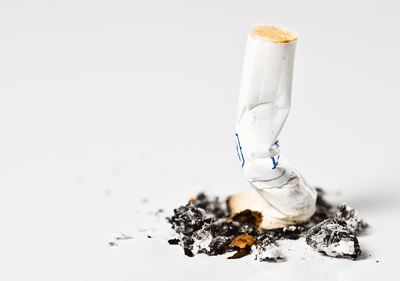Quitting smoking isn’t easy. It takes time and a plan. Start with day one— November 21 the Great American Smoke Out is your day to start your journey toward a smoke-free life. You will join thousands of people who smoke throughout the country in taking an important step toward a healthier life and reducing your risk for many chronic and life-threatening illnesses. Quitting smoking improves health immediately and over the long term – at any age. Stopping smoking is hard, but you increase your chances of success with help through counseling and medications, which doubles or even triples your chances of quitting successfully.
Here are some tips for quitting smoking:
•Know that you are not a bad person because you smoke – the nicotine addiction has created an urge that is very challenging to control
•Engage your hands in something— arts and crafts, cooking, sewing, reading— to keep from picking up a cigarette
•Do not have cigarettes accessible— don’t buy them and don’t keep them around
•Seek counseling and ask about medications that may be right for you on your journey to a smoke free life
More than 34 million Americans still smoke cigarettes, and smoking remains the single largest preventable cause of death and illness in the world. Smoking causes an estimated 480,000 deaths every year, or about one in five deaths and more than 16 million Americans live with a smoking-related disease.
While the rates of tobacco use among Maryland adults and youth have decreased since 2000, still 7,500 adults in Maryland die each year due to tobacco-related causes, and hundreds of thousands more suffer from tobacco-related diseases such as COPD, emphysema or cancers. And, the number of Maryland residents who have never smoked has increased.
While less people smoke now (14 percent in 2017) than did 50 years ago (42 percent in 1965), some groups of Americans suffer disproportionately from smoking-related cancer and other diseases, including those who have less education, who live below the poverty level, or who suffer from serious psychological distress, as well as certain racial and ethnic groups, and lesbians, gays and bisexuals. Additionally, non-smokers— especially young children (and even pets)— are also affected by tobacco through exposure to the toxins found in secondhand smoke.
Sadly, thousands of young people start smoking cigarettes and other tobacco products like e-cigarettes every day, and smoking leads to disease and disability that harms nearly every part of their the body. The number of youth using new/emerging products, such as e-cigarettes, e-hookah, vape pens, has increased dramatically since 2011, leading to even more harmful side effects, as one e-cigarette has the same amount of nicotine as an entire pack of cigarettes!
If you or someone you know is a smoker who is ready to take charge of their health, the University of Maryland Medical Center Downtown and Midtown Campuses have experts and resources to help! Classes, medications, lung cancer screenings, and a doctor who specializes in helping people quit smoking are all available to our community.
Janaki Deepak, MBBS, FACP, is an Assistant Professor of Medicine, Universtiy of Maryland School of Medicine, Assistant Program Director, Pulmonary and Critical Care Fellowship, and Director Lung Cancer Screening and Tobacco Health & Treatment Pulmonary Health Center, University Of Maryland Medical Center Midtown Campus.
